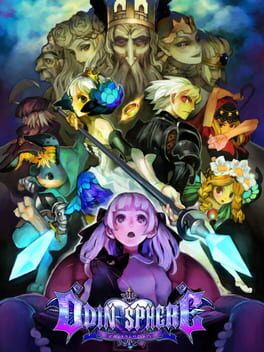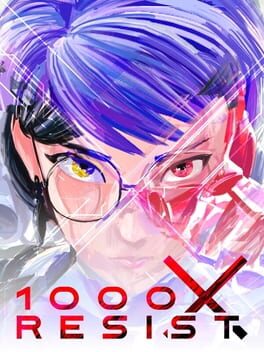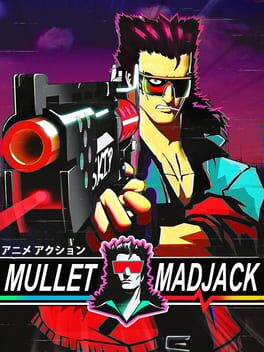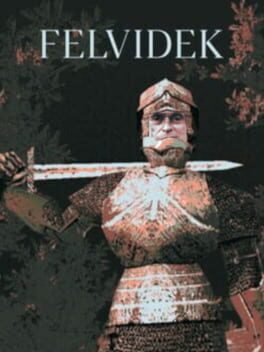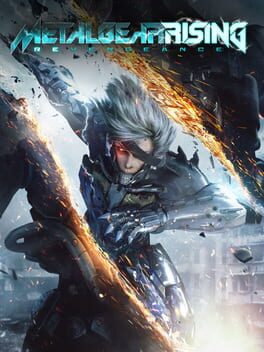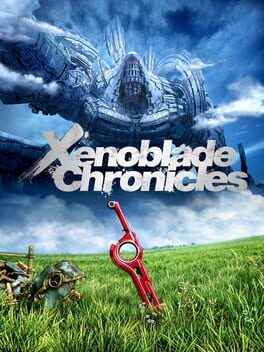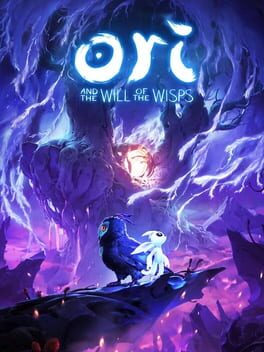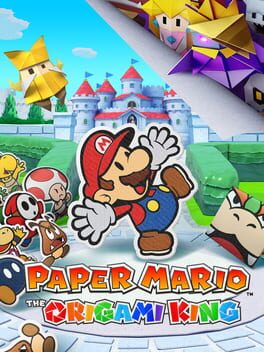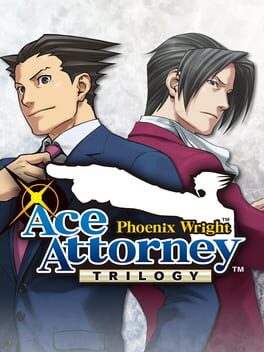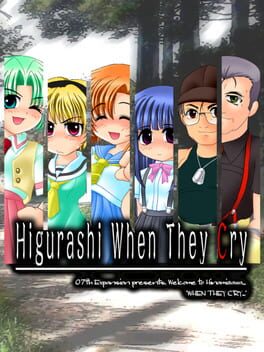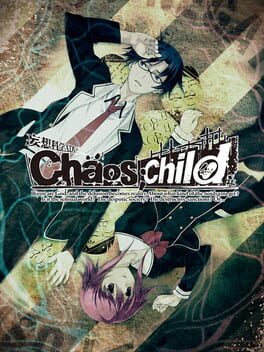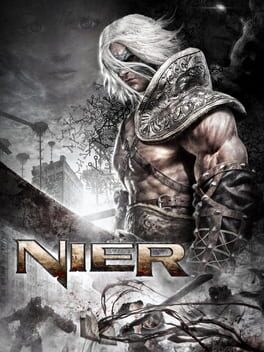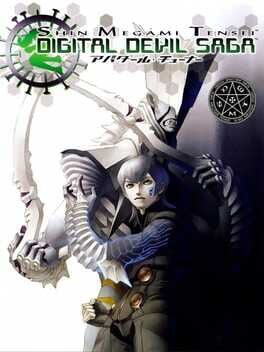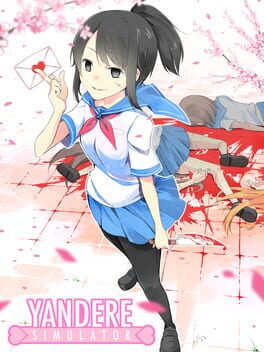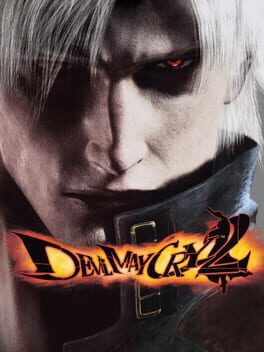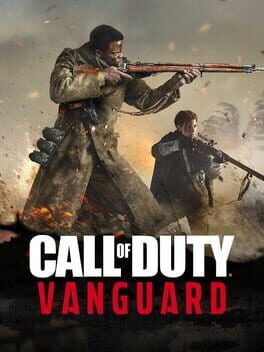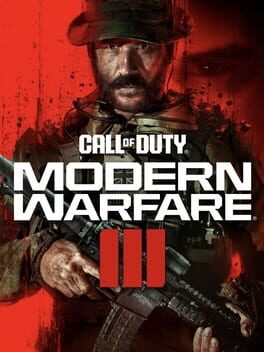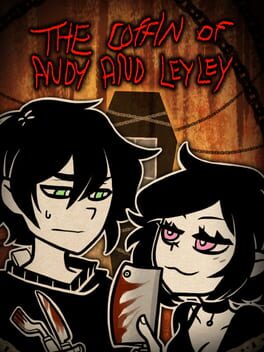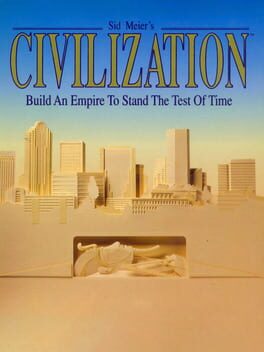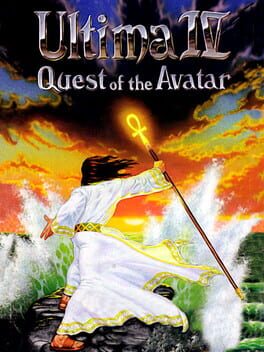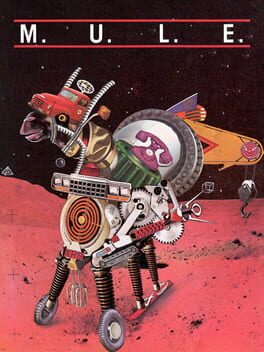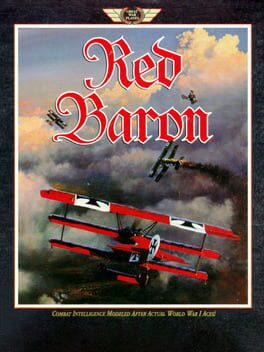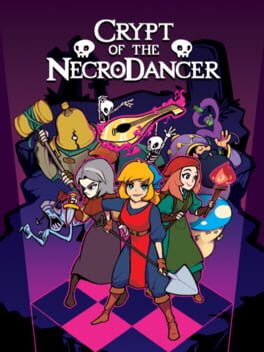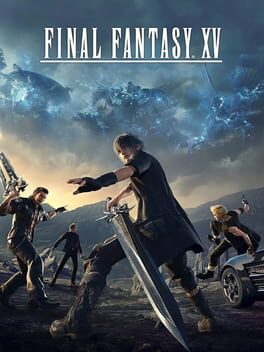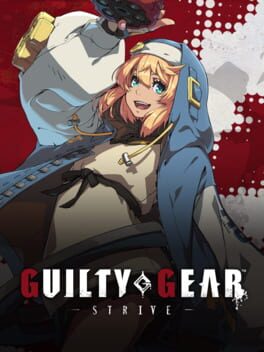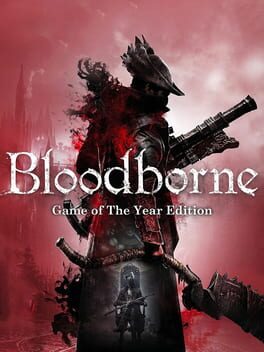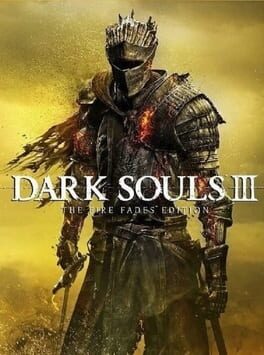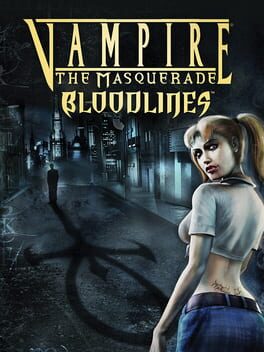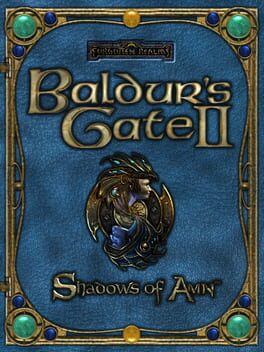Replicant1737
388 reviews liked by Replicant1737
Baldur's Gate 3
2020
You know, I walked into Baldur's Gate 3 almost begging for it to not somehow live up to the insane levels of hype it has received, just so there was something I could talk about that wasn't just me saying what literally everybody else has been saying. But nope, Baldur's Gate 3 really is that fucking unbelievable; a game of such scope and scale that it makes every other RPG quake in it's boots.
A beautiful hodge podge of stuff in here too numerous to count. The dynamic (and uniformly great) character stuff in here is the highlight as you shape these characters from the ground up, and the freedom you have in terms of navigating the purposefully simple tale is the whole appeal. Appreciate that it carries over many of the quirks from the first two BioWare entries too - from it's clever sidequests to it's balls hard difficulty at points. What a fucking game.
A beautiful hodge podge of stuff in here too numerous to count. The dynamic (and uniformly great) character stuff in here is the highlight as you shape these characters from the ground up, and the freedom you have in terms of navigating the purposefully simple tale is the whole appeal. Appreciate that it carries over many of the quirks from the first two BioWare entries too - from it's clever sidequests to it's balls hard difficulty at points. What a fucking game.
God of War
2018
If you've ever played a Zelda game, you're probably familiar with the narrative setup of having to find a few mcguffins to be able to progress before having to find a second and final set. God of War 2018's setup is like this but instead of a set, you're constantly looking for a singular item, making some progress, then needing to backtrack to find another item to make more progress. This isn't the only comparison one can make to the Zelda series as Atreus and Kratos get new abilities and i tems that help solve puzzles. These are never particularly difficult to solve but are better than the constant block pushing of prior games. In fact the whole world feels somewhat built like one giant Zelda dungeon. Unlocking new abilities and areas as you progress with the main story, and returning to a hub area to make use of these.
This setup is mechanically satisfying as many years of Zelda has proven, but it goes against the narrative of the title. A father and son journeying to the highest peak in all the realms is a narrative built on forward momentum. The story ends up feeling meandering as there's always a new roadblock that forces them all the way back to the lake of nine.
This frequent back and forth would be better if the game didn't have dozens upon dozens of hidden loading screens that are more blatantly loading screens than not. My computer is powerful enough to load these areas much quicker than a PS4 could, but this design forces me to slowly crawl through crevices or listen to Mimir's entire tale before leaving the fast travel zone. Admittedly, I enjoyed the dialogue in the game. The banter between characters and how they acted towards eachother was decent fun, but as you backtrack for hidden goodies with your new tools the characters stay eerily quiet in spite of the wealth of dialogue to listen to during boat rides.
I'm not as negative about the combat as other people are, but its problems and flaws are apparent. Mouse and Keyboard controls help mitigate the issues with the camera to an extent, but you're still going to get backed into corners with awkward viewing angles at points. The entire RPG system feels like an afterthought. You always want to go for the higher levels because stats don't matter. If an enemy is too high a level they will shrug off attacks and their attacks will become unblockable. This ends up feeling inconsistent because the same exact enemy can either be juggled by Kratos or stand rock solid on the ground, instakilling the greek god.
When you get into the zone and properly use both Kratos and Atreus the combat is a lot of fun, but some annoying enemies get in the way regardless of their level. Variety is low, and several frequent ones have annoying status effects or gimmicks to deal with whenever you face them.
It never reaches the lows of the first two God of War titles but fails to reach their highs either. Spectacle is present, but it never feels spectacular to me. The consistently close in camera fails to convey the sense of scale of things like the classic camera from the trilogy could with its multiple angles.
God of War 2018 is a solid action adventure romp but it never resonated with me quite as strongly as it does for others. It's superior to the first two titles in the series, but I found myself more consistently engaged in the furious antics of Kratos' finale on Olympus than I did in this somewhat scatterbrained adventure.
This setup is mechanically satisfying as many years of Zelda has proven, but it goes against the narrative of the title. A father and son journeying to the highest peak in all the realms is a narrative built on forward momentum. The story ends up feeling meandering as there's always a new roadblock that forces them all the way back to the lake of nine.
This frequent back and forth would be better if the game didn't have dozens upon dozens of hidden loading screens that are more blatantly loading screens than not. My computer is powerful enough to load these areas much quicker than a PS4 could, but this design forces me to slowly crawl through crevices or listen to Mimir's entire tale before leaving the fast travel zone. Admittedly, I enjoyed the dialogue in the game. The banter between characters and how they acted towards eachother was decent fun, but as you backtrack for hidden goodies with your new tools the characters stay eerily quiet in spite of the wealth of dialogue to listen to during boat rides.
I'm not as negative about the combat as other people are, but its problems and flaws are apparent. Mouse and Keyboard controls help mitigate the issues with the camera to an extent, but you're still going to get backed into corners with awkward viewing angles at points. The entire RPG system feels like an afterthought. You always want to go for the higher levels because stats don't matter. If an enemy is too high a level they will shrug off attacks and their attacks will become unblockable. This ends up feeling inconsistent because the same exact enemy can either be juggled by Kratos or stand rock solid on the ground, instakilling the greek god.
When you get into the zone and properly use both Kratos and Atreus the combat is a lot of fun, but some annoying enemies get in the way regardless of their level. Variety is low, and several frequent ones have annoying status effects or gimmicks to deal with whenever you face them.
It never reaches the lows of the first two God of War titles but fails to reach their highs either. Spectacle is present, but it never feels spectacular to me. The consistently close in camera fails to convey the sense of scale of things like the classic camera from the trilogy could with its multiple angles.
God of War 2018 is a solid action adventure romp but it never resonated with me quite as strongly as it does for others. It's superior to the first two titles in the series, but I found myself more consistently engaged in the furious antics of Kratos' finale on Olympus than I did in this somewhat scatterbrained adventure.
Odin Sphere
2007
It started feeling like a chore about 20 hours in, but until that point I was extremely impressed with this. Everything about the presentation is beautiful, the combat (especially given the switch-ups that the different storylines provide) is nice and meaty, and the crafting system is exactly the right amount of deep-but-not-impenetrable. Even the story has some downright surprising hooks, given how chintzy and fantasy paint-by-numbers it feels at first.
On the technical side, the slowdown during some of the more crowded fights is straight wild. Might be worth picking up that remaster if you haven't yet checked this out, but I'm not entirely sure how much they fucked with the gameplay. As it stands, this one is plenty good.
On the technical side, the slowdown during some of the more crowded fights is straight wild. Might be worth picking up that remaster if you haven't yet checked this out, but I'm not entirely sure how much they fucked with the gameplay. As it stands, this one is plenty good.
1000xResist
2024
1000xResist is one of those sleeper indie games I picked up because of the seemingly out of nowhere cult favoritism and fanfare they've gotten, thinking I may be in the running for a hidden gem and possible memorable sleeper hit. What I quickly found out as I made my way through this visual-novel esque piece of abstract was that you are intended to revel and take in the confusion as a piece of endearment towards this media and not as a detraction. The scope of the narrative is entirely obscure and reminiscent of an amalgamation of futuristic and philosophical pieces of work that I've experienced in the past like Nier: Automata, Land of the Lustrous, and strangely enough Aldous Huxley's Brave New World. I'm all for the out-there when it comes to penning a story, but there has to be a level of grounding for me to have a buy-in. Nier: Automata's abstractism and grandiose questioning of Philip K Dickian ponderings works because it has an immediate pressing storyline to help carry on the deeper and more intrinsic philosophies. Where 1000xResist separates for me is that you as the player are immediately thrust into a cavernously deep thought-focused plot with no real endeavor made to either coat it under an easier to parse coat of paint or giving it a guiding light. I'm not saying that it needed to be spoken to the player like they were out of Idiocracy or something, but Moreso that levelling out a ten or so hour experience in abstract and only making it more confusing and... abstract leads to a story that never really sticks for me.
I was able to understand the loose goings-ons of things as they happened and the messages placed throughout the game, but it never really struck with me as a critically important or thought provoking piece of media. This is the same gripe I had with the last six episodes of Neon Genesis: Evangelion that gets me in hot water with friends of mine as we discuss the hallmark and legendary anime. As the creator delved further into the conceptional of Shinji's mind and enemies at large and further and further into psychological mysticism, I fell out of favor with the show. It felt like it was trying to "think too much" and not "say enough." That is ultimately my qualm with 1000xResist, there is a lot being done in weird ways that are meant to be symbolic and interesting but ultimately fell flat because of the persistence to non-linear and ambiguous storytelling.
On top of qualms with the way the story was told, there are some slight issues I had with this game that don't really chalk up to much of a real con-list: voice acting I felt could have been greatly improved to create a more passionate tale, and the hub world that you revisit quite a bit is maze-like and annoying to traverse.
Pick this up if you want a mildly interesting (basically) visual novel that jumps heavily into science fiction themes, but if you want a game that will stick with you and make you think, this was not it.
I was able to understand the loose goings-ons of things as they happened and the messages placed throughout the game, but it never really struck with me as a critically important or thought provoking piece of media. This is the same gripe I had with the last six episodes of Neon Genesis: Evangelion that gets me in hot water with friends of mine as we discuss the hallmark and legendary anime. As the creator delved further into the conceptional of Shinji's mind and enemies at large and further and further into psychological mysticism, I fell out of favor with the show. It felt like it was trying to "think too much" and not "say enough." That is ultimately my qualm with 1000xResist, there is a lot being done in weird ways that are meant to be symbolic and interesting but ultimately fell flat because of the persistence to non-linear and ambiguous storytelling.
On top of qualms with the way the story was told, there are some slight issues I had with this game that don't really chalk up to much of a real con-list: voice acting I felt could have been greatly improved to create a more passionate tale, and the hub world that you revisit quite a bit is maze-like and annoying to traverse.
Pick this up if you want a mildly interesting (basically) visual novel that jumps heavily into science fiction themes, but if you want a game that will stick with you and make you think, this was not it.
Mullet Mad Jack
2024
one more minute of this and i'm pretty sure i'll get brain aneurysm and die
the type of game where i'm surprised you don't get actual reddit gold for clearing levels and when you die some neckbeard photoshops you in reddit heaven next to harambe or doge
bad visuals, bad combat, bad story, bad characters, bad dialogue, bad everything. i wonder who thought recreating retro anime aesthethic meant adding rgb lighting and memes in every corner possible
the type of game where i'm surprised you don't get actual reddit gold for clearing levels and when you die some neckbeard photoshops you in reddit heaven next to harambe or doge
bad visuals, bad combat, bad story, bad characters, bad dialogue, bad everything. i wonder who thought recreating retro anime aesthethic meant adding rgb lighting and memes in every corner possible
Alan Wake Remastered
2021
One of the most frustrating experiences with a game I've ever had.
Going to start with what I liked with this game. It's been said many times, but there is a lot of Stephen King, Twin Peaks, and The Twilight Zone in this game. The atmosphere is very tense and the storm sound effects made it feel all-encompassing at times. The story is very interesting, the psychological angle made for a very engaging time the entire playthrough and the titular character being an unreliable narrator always makes you want to see where the story would go. The farm musical number was genuinely awesome and lots of fun.
Again not to repeat other popular opinions, but the gameplay almost put me off finishing the game at numerous points, let alone try the sequel. Alan Wake himself is by far the most aggravating player character I've played as. A combination of the physics and enemy layout made me doubt if I really wanted to finish this game. The sprint is pathetic and makes unupgraded Sebastian from Evil Within 1 seem acrobatic, the floaty physics makes it feel very unresponsive and I've fallen off more than a few ledges without meaning to, the game LOVES to throw hordes of enemies all at once which completely nullifies the already fickle dodge mechanics (sometimes the input feels completely dropped). There are numerous moments that are so enraging I refuse to go back through the game for trophies because it's not worth the hassle. The limited playstyle feels like it was meant to be a pure horror game but it throws as many enemies at you as Resident Evil 4 did, which is not fun when your character is less capable than James from Silent Hill 2. Combine this with the VERY repetitive gameplay loop really tested my patience, EVERY chapter.
The DLC has two chapters. The first chapter was more of the same, so naturally I abhorred it. The second chapter, however, actually felt like it played to the game's strengths. It had the most interesting level designs, the enemy spawns (usually) didn't feel like a detriment, and the story actually had a satisfying conclusion and has me looking forward to continuing exploring this verse from Remedy.
This game made me think of my experience with Drakengard, both games had gameplay that infuriated me at times but had very good story and lore. I'm really disappointed and truly wish I did love this game, but the story wasn't enough to compensate for its gameplay. I'm sure many will take issue with my thoughts here and might even love the game for what I hated, but this is how I feel. Still looking forward to the sequel. Now onto Control.
Strong 5/10
Going to start with what I liked with this game. It's been said many times, but there is a lot of Stephen King, Twin Peaks, and The Twilight Zone in this game. The atmosphere is very tense and the storm sound effects made it feel all-encompassing at times. The story is very interesting, the psychological angle made for a very engaging time the entire playthrough and the titular character being an unreliable narrator always makes you want to see where the story would go. The farm musical number was genuinely awesome and lots of fun.
Again not to repeat other popular opinions, but the gameplay almost put me off finishing the game at numerous points, let alone try the sequel. Alan Wake himself is by far the most aggravating player character I've played as. A combination of the physics and enemy layout made me doubt if I really wanted to finish this game. The sprint is pathetic and makes unupgraded Sebastian from Evil Within 1 seem acrobatic, the floaty physics makes it feel very unresponsive and I've fallen off more than a few ledges without meaning to, the game LOVES to throw hordes of enemies all at once which completely nullifies the already fickle dodge mechanics (sometimes the input feels completely dropped). There are numerous moments that are so enraging I refuse to go back through the game for trophies because it's not worth the hassle. The limited playstyle feels like it was meant to be a pure horror game but it throws as many enemies at you as Resident Evil 4 did, which is not fun when your character is less capable than James from Silent Hill 2. Combine this with the VERY repetitive gameplay loop really tested my patience, EVERY chapter.
The DLC has two chapters. The first chapter was more of the same, so naturally I abhorred it. The second chapter, however, actually felt like it played to the game's strengths. It had the most interesting level designs, the enemy spawns (usually) didn't feel like a detriment, and the story actually had a satisfying conclusion and has me looking forward to continuing exploring this verse from Remedy.
This game made me think of my experience with Drakengard, both games had gameplay that infuriated me at times but had very good story and lore. I'm really disappointed and truly wish I did love this game, but the story wasn't enough to compensate for its gameplay. I'm sure many will take issue with my thoughts here and might even love the game for what I hated, but this is how I feel. Still looking forward to the sequel. Now onto Control.
Strong 5/10
THE YEAR OF THE DRAGON
Infinite Wealth is an anomaly. Originally, I meant this in a way that wasn't particularly endearing, but after letting this game cook with me more that's starting to change, if only a little bit. This and Final Fantasy VII Rebirth made for the most unexpected back-to-back combo I played this year. Both are these sprawling role-playing experiences trying to bridge the old and new of their respective franchise histories through addressing the fates of iconically beloved characters. Which fueled the marketing and expectations for fans like myself going in. Wondering what exactly is going to happen, and where it leaves us next. And interestingly, how both games addressed this said elephant in the room was an awkward compromise. A lack of full commitment to deliver on their initial promise of moving forwards that leaves the state of future entries very uncertain. For Infinite Wealth, I'm less positive because what I got was distractingly half-baked in a way no Yakuza/Like A Dragon entry was before. I've seen comparisons made with Yakuza 5, which I sorta understand. They're both packed with side content while messily telling stories with beating hearts underneath it all. I wouldn't call Infinite Wealth ambitious, at least not to the scale of Yakuza 5, but there's definitely something here that will leave me thinking about by the time of the next mainline entry, regardless of the execution. What we got are two games taped into one. A sequel to Ichiban Kasuga's first outing as the new lead protagonist, while the other is yet another final outing for Kazuma Kiryu who started it all -- for realsies. When I was making my way through these games, my biggest growing concern as I inched closer and closer to Infinite Wealth was the decision to make Kiryu a main protagonist again. Because if the last few games were any impression, it was that RGG were unwilling to let go of Kazuma Kiryu and his supporting cast. That despite landing success with Kasuga as the successor, they still needed to keep him and old series regulars around in some relevant capacity. Either this was a lack of full confidence in Kasuga taking lead, or because they're too sentimentally attached to Kiryu, or some mixture of both.
Now, I'm very critical of Yakuza 7. I don't love it nearly as many do. I think it has a lot of flaws which drag it back. From flimsily designed turn based combat and a story that took too long to reign in momentum to lock in for its very climax. Alongside introducing threads during that slow stretch to either try to awkwardly spice up the drama or just flat out forget. Nanba's random plot with his brother that went nowhere (isn't even acknowledged here lmao) and Adachi's plot of getting payback against the corrupt police officer working with the main antagonist that gets resolved in a literal post credit scene immediately springs to mind. I don't think it's 'great', but what Yakuza 7 sticks the landing despite that is passing the torch. We've moved on from Kiryu, and that's that. Until... Gaiden came along. Yakuza 7 was already pushing it by bringing back Kiryu, albeit in a supporting role for Ichiban's story, but Gaiden is where red flags were beginning to raise for me. Luckily, it surprisingly works as an epilogue to Yakuza 6's ending while bridging the gaps up to Infinite Wealth. Waiving my concerns about Kiryu sharing the spotlight with Ichiban, as though there's something cooking by pairing the two together like this. What I ended up getting was almost what I wanted yet at the same time, almost none at all at the same time.
Infinite Wealth wants to be two games, but it doesn't do either very well nor balance them together. I have no idea why RGG didn't use Yakuza 0 as the template for dual protagonists with their own respective plots and content that run parallel to each other until they converge in the climax. They did do this... half way through the game. When you finally switch to playing as Kiryu and everything from the trailers actually... happens. By the time the switch up happens, you only have 3-4 chapters for Kiryu alone. His stuff is incredibly backloaded as a result, mainly being relegated to glorified substories than something more integral to his side of the main story. I have the suspicion that something went down in development to cause all this. Like, there must've been more chapters intended to space out the story more evenly while accommodating the abundance of gameplay but it got rushed to meet the almost annual RGG release slot quicker. It would explain why many story beats and characters, especially beyond Kiryu's storyline, felt underdeveloped or forgotten. Maybe I'm asking too much, but considering this was marketed and intended to be Kiryu's final game -- they even gave him cancer to make it legit -- I was expecting something to wrap up loose ends in a big satisfying way that even his first finale in Yakuza 6 couldn't cover. While I was pleasantly surprised to see characters in his life pop up for closure, I was mixed on how it was treated in-game just to make the post credit scene feel moving in retrospect. I guess I'll have to mention Ichiban but I really don't have much to say because he's so impersonally involved in his second game. The first few chapters, iffy stuff aside like the Saeko romance subplot that was REALLY bad, feel like a wonderful follow-up to Yakuza 7's ending while seamlessly charting out the direction for his character in however many games he has left. The moment the ball gets rolling and when he goes to Hawaii though... it flatlines. Like, they had a strong hook for him but it got lost in the midst of the plot and what's going on with Kiryu that gained more gravitas. I can't buy into the Yakuza 5 comparisons seriously because unlike that game, Infinite Wealth has no sweeping highs or lowest lows going for it. It straddles on this fine line of just being... pretty boring, straight up mid I'd say, and for every step forward it does take from Yakuza 7 it needs to take two steps back. I'm also not kidding when I say this has the worst antagonists since Yakuza 4. How did we get back there. Look, I understand what the narrative is trying to go for on paper. This is a game about forgiveness, redemption, friendship -- the true Infinite Wealth -- along with some religious subtext the two main antagonists embody to foil Ichiban and Kiryu. Ichiban seeks selfless salvation and refuge for everyone, so he fights a bad guy who's a mockery of it. Kiryu is trying to take responsibility for his past, so he fights a bad guy representing the karma of the yakuza. These are good ideas for antagonists, but that's all it becomes. It's so underdeveloped that you can't help but wonder why the antagonists they each confront in the finale should've been swapped to feel more appropriate. Especially since Kasuga has been lacking personal stake in his own game, so an antagonist to offer him something would've been a bit fulfilling.
Moving beyond the story, Infinite Wealth's gameplay is generally a net positive in my book. Hawaii makes for a nice radical departure from every locale we've ever exploded in Yakuza/Like A Dragon. It's very big, vibrant, with so much distractions to get lost in when taking a break from whatever's going on in the main story. The substories are bit too spread thin but I enjoyed most of what I played. The mini games, like Sujimon, Crazy Eats, or Dondoko Island, felt really cool but I never sank deep into either for the sake of my insanity and time. Neither are really for me, but I see the appeal for others. Karaoke still remains my top favorite, of course. Honolulu City Lights is an instant classic and I felt too much emotion seeing Kiryu and Ichiban sing Judgment together. I've mentioned this before, I'm not really a completionist when it comes to this series, so I have to imagine this ranks very high as a monstrous beast to try and do that with.
Alright, no beating around the bush, lets get straight into it -- the turn-based combat. Now, Yakuza 7's turn based combat was... yeah, no it's kinda bad. There's no real strats at play, never any interesting enemy encounter design that invokes carefulness in approach, just spamming the same two or three most strongest abilities from a menu as long as your arm. It's... boring. Incredibly boring in a game with an overwhelming playtime that can breach 100 hours. A narrative can only do so much heavy lifting when the other half, the more important aspect for players to engage with, is slouching behind hard. I know there's many people who are here mainly for the story when it comes to games like Yakuza/Like A Dragon, but I'm here for both tbh. This is where the job system comes into play. Something I'm guaranteed RGG implemented to help remedy the lack of depth the turn based combat has. If your game doesn't have enough mechanical depth then make sure it has enough mechanical width instead. The beauty of the job system in RPGs is that it enables this layer of customization and player freedom. Every job is distinct, serves a unique function in combat, invites experimentation waiting to happen when optimizing a party for battle. RGG understands this... vaguely? Well, enough that it's a paper cutout of what a good job system looks like. Unfortunately, something that hasn't changed in Infinite Wealth by not directly addressing the key issue with the implementation. There's just no incentive to swap out of your starting job. Kiryu's the prime example of how RGG continues to botch the job system. Dragon of Dojima is incredibly imbalanced. Being way too good to swap out of by easily having more mechanical width than every other starting job combined. I'm not kidding. He can change change his basic attacks to grapple through guards, perform rush combos that lets him attack twice in a turn, and perform heat moves depending on the situation. Not even getting to how he has a special move that obliterates the turn based combat and temporarily changes the game to be a beat em up brawler. None of the other jobs have this level of flexibility going on. Not even Ichiban for some reason! And he's the main protagonist who should be getting the good stuff! They did address other criticisms I had with the turn based combat by tweaking it to take better advantage of the Dragon Engine's collision physics. Battles now feel dynamic, truly dynamic, where previously it gave you the illusion it was because party members and enemies aimlessly move around. Each party member now has their own radius where you can freely control spatial positioning. This lets you attack enemies from behind for better damage, knock them in a direction to collide with other enemies like bowling pins, sometimes even string up combo attacks on enemies by knocking them around the battlefield like bumper cars with help of your closest party member, have clearer use of AoE attacks, and can properly pick up objects in an environment to do improvised weapon attacks instead of hoping you're lucky. It's not perfect, not even 'good', as difficulty continues being a joke and the newfound approach for turn based gets exhausting in the last stretch of the game because it's still missing a modicum of depth for this new width. Nevertheless, much as I'm pretty sure I'll never get behind these games on their philosophy alone, it is reassuring that notes are being taken to get the combat up to snuff with the rest of the genre.
It's frustrating. This game was disappointing the more I do understand the intent underneath so much here. I spent months playing through entry after entry to get to this current endpoint. I can't even say I didn't enjoy this at least. I spent over 100 hrs into this and don't regret most of that experience. There's moments I liked, but never loved. The scene near the end that beautifully compares and contrasts Ichiban and Kiryu comes close... but it's placed in a game that had to strangely walk back on a lot of set-up in Yakuza 7 for the plot to even unfold. Knowing that it was written after Infinite Wealth was done, Gaiden is especially awkward looking back because so much of it didn't matter in this game. While seemingly having a resolution for Kiryu, I can't help but feel it's not truly over yet. So, this didn't work entirely as his final swan song for me because what he had to learn was more/less what he already learned in previous games. This is Ichiban's second chapter of his life and I'm left unsure what to expect or get excited for in his next game. I think RGG are aware of the faults in their approach in role-playing game design, but it's incremental improvements at best. My biggest hope is that Yamai, my new favorite of the newer characters, gets the opportunity to come back as a mainstay for Kasuga's games and become his Majima. He's way too great of a character to be left in just this entry. If not, then im just really concerned about the future of this series I grew to respect and love and hope won't change.
Infinite Wealth is an anomaly. Originally, I meant this in a way that wasn't particularly endearing, but after letting this game cook with me more that's starting to change, if only a little bit. This and Final Fantasy VII Rebirth made for the most unexpected back-to-back combo I played this year. Both are these sprawling role-playing experiences trying to bridge the old and new of their respective franchise histories through addressing the fates of iconically beloved characters. Which fueled the marketing and expectations for fans like myself going in. Wondering what exactly is going to happen, and where it leaves us next. And interestingly, how both games addressed this said elephant in the room was an awkward compromise. A lack of full commitment to deliver on their initial promise of moving forwards that leaves the state of future entries very uncertain. For Infinite Wealth, I'm less positive because what I got was distractingly half-baked in a way no Yakuza/Like A Dragon entry was before. I've seen comparisons made with Yakuza 5, which I sorta understand. They're both packed with side content while messily telling stories with beating hearts underneath it all. I wouldn't call Infinite Wealth ambitious, at least not to the scale of Yakuza 5, but there's definitely something here that will leave me thinking about by the time of the next mainline entry, regardless of the execution. What we got are two games taped into one. A sequel to Ichiban Kasuga's first outing as the new lead protagonist, while the other is yet another final outing for Kazuma Kiryu who started it all -- for realsies. When I was making my way through these games, my biggest growing concern as I inched closer and closer to Infinite Wealth was the decision to make Kiryu a main protagonist again. Because if the last few games were any impression, it was that RGG were unwilling to let go of Kazuma Kiryu and his supporting cast. That despite landing success with Kasuga as the successor, they still needed to keep him and old series regulars around in some relevant capacity. Either this was a lack of full confidence in Kasuga taking lead, or because they're too sentimentally attached to Kiryu, or some mixture of both.
Now, I'm very critical of Yakuza 7. I don't love it nearly as many do. I think it has a lot of flaws which drag it back. From flimsily designed turn based combat and a story that took too long to reign in momentum to lock in for its very climax. Alongside introducing threads during that slow stretch to either try to awkwardly spice up the drama or just flat out forget. Nanba's random plot with his brother that went nowhere (isn't even acknowledged here lmao) and Adachi's plot of getting payback against the corrupt police officer working with the main antagonist that gets resolved in a literal post credit scene immediately springs to mind. I don't think it's 'great', but what Yakuza 7 sticks the landing despite that is passing the torch. We've moved on from Kiryu, and that's that. Until... Gaiden came along. Yakuza 7 was already pushing it by bringing back Kiryu, albeit in a supporting role for Ichiban's story, but Gaiden is where red flags were beginning to raise for me. Luckily, it surprisingly works as an epilogue to Yakuza 6's ending while bridging the gaps up to Infinite Wealth. Waiving my concerns about Kiryu sharing the spotlight with Ichiban, as though there's something cooking by pairing the two together like this. What I ended up getting was almost what I wanted yet at the same time, almost none at all at the same time.
Infinite Wealth wants to be two games, but it doesn't do either very well nor balance them together. I have no idea why RGG didn't use Yakuza 0 as the template for dual protagonists with their own respective plots and content that run parallel to each other until they converge in the climax. They did do this... half way through the game. When you finally switch to playing as Kiryu and everything from the trailers actually... happens. By the time the switch up happens, you only have 3-4 chapters for Kiryu alone. His stuff is incredibly backloaded as a result, mainly being relegated to glorified substories than something more integral to his side of the main story. I have the suspicion that something went down in development to cause all this. Like, there must've been more chapters intended to space out the story more evenly while accommodating the abundance of gameplay but it got rushed to meet the almost annual RGG release slot quicker. It would explain why many story beats and characters, especially beyond Kiryu's storyline, felt underdeveloped or forgotten. Maybe I'm asking too much, but considering this was marketed and intended to be Kiryu's final game -- they even gave him cancer to make it legit -- I was expecting something to wrap up loose ends in a big satisfying way that even his first finale in Yakuza 6 couldn't cover. While I was pleasantly surprised to see characters in his life pop up for closure, I was mixed on how it was treated in-game just to make the post credit scene feel moving in retrospect. I guess I'll have to mention Ichiban but I really don't have much to say because he's so impersonally involved in his second game. The first few chapters, iffy stuff aside like the Saeko romance subplot that was REALLY bad, feel like a wonderful follow-up to Yakuza 7's ending while seamlessly charting out the direction for his character in however many games he has left. The moment the ball gets rolling and when he goes to Hawaii though... it flatlines. Like, they had a strong hook for him but it got lost in the midst of the plot and what's going on with Kiryu that gained more gravitas. I can't buy into the Yakuza 5 comparisons seriously because unlike that game, Infinite Wealth has no sweeping highs or lowest lows going for it. It straddles on this fine line of just being... pretty boring, straight up mid I'd say, and for every step forward it does take from Yakuza 7 it needs to take two steps back. I'm also not kidding when I say this has the worst antagonists since Yakuza 4. How did we get back there. Look, I understand what the narrative is trying to go for on paper. This is a game about forgiveness, redemption, friendship -- the true Infinite Wealth -- along with some religious subtext the two main antagonists embody to foil Ichiban and Kiryu. Ichiban seeks selfless salvation and refuge for everyone, so he fights a bad guy who's a mockery of it. Kiryu is trying to take responsibility for his past, so he fights a bad guy representing the karma of the yakuza. These are good ideas for antagonists, but that's all it becomes. It's so underdeveloped that you can't help but wonder why the antagonists they each confront in the finale should've been swapped to feel more appropriate. Especially since Kasuga has been lacking personal stake in his own game, so an antagonist to offer him something would've been a bit fulfilling.
Moving beyond the story, Infinite Wealth's gameplay is generally a net positive in my book. Hawaii makes for a nice radical departure from every locale we've ever exploded in Yakuza/Like A Dragon. It's very big, vibrant, with so much distractions to get lost in when taking a break from whatever's going on in the main story. The substories are bit too spread thin but I enjoyed most of what I played. The mini games, like Sujimon, Crazy Eats, or Dondoko Island, felt really cool but I never sank deep into either for the sake of my insanity and time. Neither are really for me, but I see the appeal for others. Karaoke still remains my top favorite, of course. Honolulu City Lights is an instant classic and I felt too much emotion seeing Kiryu and Ichiban sing Judgment together. I've mentioned this before, I'm not really a completionist when it comes to this series, so I have to imagine this ranks very high as a monstrous beast to try and do that with.
Alright, no beating around the bush, lets get straight into it -- the turn-based combat. Now, Yakuza 7's turn based combat was... yeah, no it's kinda bad. There's no real strats at play, never any interesting enemy encounter design that invokes carefulness in approach, just spamming the same two or three most strongest abilities from a menu as long as your arm. It's... boring. Incredibly boring in a game with an overwhelming playtime that can breach 100 hours. A narrative can only do so much heavy lifting when the other half, the more important aspect for players to engage with, is slouching behind hard. I know there's many people who are here mainly for the story when it comes to games like Yakuza/Like A Dragon, but I'm here for both tbh. This is where the job system comes into play. Something I'm guaranteed RGG implemented to help remedy the lack of depth the turn based combat has. If your game doesn't have enough mechanical depth then make sure it has enough mechanical width instead. The beauty of the job system in RPGs is that it enables this layer of customization and player freedom. Every job is distinct, serves a unique function in combat, invites experimentation waiting to happen when optimizing a party for battle. RGG understands this... vaguely? Well, enough that it's a paper cutout of what a good job system looks like. Unfortunately, something that hasn't changed in Infinite Wealth by not directly addressing the key issue with the implementation. There's just no incentive to swap out of your starting job. Kiryu's the prime example of how RGG continues to botch the job system. Dragon of Dojima is incredibly imbalanced. Being way too good to swap out of by easily having more mechanical width than every other starting job combined. I'm not kidding. He can change change his basic attacks to grapple through guards, perform rush combos that lets him attack twice in a turn, and perform heat moves depending on the situation. Not even getting to how he has a special move that obliterates the turn based combat and temporarily changes the game to be a beat em up brawler. None of the other jobs have this level of flexibility going on. Not even Ichiban for some reason! And he's the main protagonist who should be getting the good stuff! They did address other criticisms I had with the turn based combat by tweaking it to take better advantage of the Dragon Engine's collision physics. Battles now feel dynamic, truly dynamic, where previously it gave you the illusion it was because party members and enemies aimlessly move around. Each party member now has their own radius where you can freely control spatial positioning. This lets you attack enemies from behind for better damage, knock them in a direction to collide with other enemies like bowling pins, sometimes even string up combo attacks on enemies by knocking them around the battlefield like bumper cars with help of your closest party member, have clearer use of AoE attacks, and can properly pick up objects in an environment to do improvised weapon attacks instead of hoping you're lucky. It's not perfect, not even 'good', as difficulty continues being a joke and the newfound approach for turn based gets exhausting in the last stretch of the game because it's still missing a modicum of depth for this new width. Nevertheless, much as I'm pretty sure I'll never get behind these games on their philosophy alone, it is reassuring that notes are being taken to get the combat up to snuff with the rest of the genre.
It's frustrating. This game was disappointing the more I do understand the intent underneath so much here. I spent months playing through entry after entry to get to this current endpoint. I can't even say I didn't enjoy this at least. I spent over 100 hrs into this and don't regret most of that experience. There's moments I liked, but never loved. The scene near the end that beautifully compares and contrasts Ichiban and Kiryu comes close... but it's placed in a game that had to strangely walk back on a lot of set-up in Yakuza 7 for the plot to even unfold. Knowing that it was written after Infinite Wealth was done, Gaiden is especially awkward looking back because so much of it didn't matter in this game. While seemingly having a resolution for Kiryu, I can't help but feel it's not truly over yet. So, this didn't work entirely as his final swan song for me because what he had to learn was more/less what he already learned in previous games. This is Ichiban's second chapter of his life and I'm left unsure what to expect or get excited for in his next game. I think RGG are aware of the faults in their approach in role-playing game design, but it's incremental improvements at best. My biggest hope is that Yamai, my new favorite of the newer characters, gets the opportunity to come back as a mainstay for Kasuga's games and become his Majima. He's way too great of a character to be left in just this entry. If not, then im just really concerned about the future of this series I grew to respect and love and hope won't change.
Felvidek
2024
Slovakia.. err, Hungary? Never felt so good!
Felvidek is a peculiar and particular JRPGMaker game with a runtime of four or so hours in which a playable priest and drunkard soldier find themselves embroiled in a multi-faceted religious-political conspiracy. I'll be honest the moment to moment plot and overarching narrative of this game were increasingly hard for me to follow as time went on, largely in part due to the long-winded speeches that site antiquated medieval European histories and faiths, but from what I was able to parse it was a fairly captivating tale. The conversational humor is tragically silly, and the fate of many characters is what you'd expect in a comedic 15th century title.
Where the game waned for me was in a randomness of difficulty. There is no levelling system, and I can't fault the devs here because the game is short, but you run out of ways to really bolster your character pretty early. You gain a few items that will make your party stronger by the means of armor, weapons, and buffs that permanantly boost your stats, but that takes enough time to kick in for early fights to hurt. Most encounters are short and enemies don't have too much health, but early on you'll feel the pain of just about everything. As you advance in the game and get new party members and a few items, things feel very doable as long as you have the coin to purchase items to spam during and after fights. There's a few times where you're locked into fighting with no way to gain back your health/mana equivalent and it felt a little unbalanced.
In all Felvidek is a mostly-forgettable Hylics-Like unless you're really looking for a walkthrough of Eastern Europe in the 15th Century with some neat visuals and music.
Felvidek is a peculiar and particular JRPGMaker game with a runtime of four or so hours in which a playable priest and drunkard soldier find themselves embroiled in a multi-faceted religious-political conspiracy. I'll be honest the moment to moment plot and overarching narrative of this game were increasingly hard for me to follow as time went on, largely in part due to the long-winded speeches that site antiquated medieval European histories and faiths, but from what I was able to parse it was a fairly captivating tale. The conversational humor is tragically silly, and the fate of many characters is what you'd expect in a comedic 15th century title.
Where the game waned for me was in a randomness of difficulty. There is no levelling system, and I can't fault the devs here because the game is short, but you run out of ways to really bolster your character pretty early. You gain a few items that will make your party stronger by the means of armor, weapons, and buffs that permanantly boost your stats, but that takes enough time to kick in for early fights to hurt. Most encounters are short and enemies don't have too much health, but early on you'll feel the pain of just about everything. As you advance in the game and get new party members and a few items, things feel very doable as long as you have the coin to purchase items to spam during and after fights. There's a few times where you're locked into fighting with no way to gain back your health/mana equivalent and it felt a little unbalanced.
In all Felvidek is a mostly-forgettable Hylics-Like unless you're really looking for a walkthrough of Eastern Europe in the 15th Century with some neat visuals and music.
My third playthrough of Platinum Games' near-perfect Metal Gear Hack and Slash is complete. Quite possibly the most quotable game of all time somehow houses impressively poignant political and social commentary while also being an incredibly snappy and engaging title to physically play. Platinum Games was in its bag at this point in time, hammering out the Bayonetta titles and about to get into their magnum opus in Nier: Automata.
Memorable fights, speeches, music... Metal Gear Rising has it all, an impressive swan song for Jack the Ripper.
Memes, the DNA of the soul.
Memorable fights, speeches, music... Metal Gear Rising has it all, an impressive swan song for Jack the Ripper.
Memes, the DNA of the soul.
Like a Dragon: Infinite Runtime
Forever an infinitely difficult series to review without turning it into a minefield of spoilers, I'll tread carefully in my Infinite Wealth review and provide a fairly short writeup for a game that is as cavernously deep as the eigth-ish-ninth-ish (main) entry in the Yakuza/Like a Dragon franchise. Like a Dragon: Infinite Wealth was a game that despite being a tremendous fan of the series' heart wrenching moments, delicately web narratives, and impeccable lived in worlds, I was timid about actually playing. The gargantuan length of its immediate predecessor and slower grind-heavy gameplay took a lot out of me, even if I was a pretty big fan of the story being told. From what I'd heard through media outlets and friends alike, Infinite Wealth had made the game even larger and more grandiose, and after playing it myself I can verify that to be true.
LAD 8 is the first title within the series to take place significantly outside of Japan, this time having the bulk of its gameplay (mostly through Ichiban) taking place in the fiftieth American State: Hawaii. Previously I thought this would be a significant boon to my enjoyment of the title because I thought the series could use a fresh start outside of its typical close quarters Japanese city streets where you're shoulder to shoulder with pedestrians and throwing down in alleyways. It turns out that I actually wasn't a fan of the transition in the slightest. Never having been to Hawaii myself I can't verify this to the actual existence of the city, but much of Infinite Wealth's streets felt almost too large and full of empty expanse. With the series prior, I'd grown use to the almost claustrophobic feeling of having too much to see and too much to do around you. However many of the games taking place in Kamurocho be damned, I took to a significant liking of the familiar sites and sounds. As the series grew and expanded to Okinawa, Osaka, and Hiroshima, I felt like Sega and RGG did a pretty good job at introducing the player to new locales that played into the DNA of what players knew. Hawaii felt big and... interestingly empty for a Yakuza/LAD title. I didn't feel connected to the valley-like wide roads and emptiness between buildings... the beach and the town didn't really feel inviting to me, for whatever reason nothing took. In addition to this, the enemy placement for such an expansive entry was abnormally dense. It felt like I couldn't run my party more than a few feet without turning myself into an engagement. I understand this is probably beneficial to levelling up characters and jobs, but man does it make for a disrupted and un-rhythmic experience. I was dodging streets and pulling detours to a far greater level than I ever was in the beat-em'-up titles that came out prior.
On the topic of not being able to buy into the new world put forth by RGG in Infinite Wealth, the voice acting and languages used came off as a bit... strange. I understand that Like a Dragon: Infinite Wealth is a Japanese game that takes place in America, and in an American state that has a significant Japanese population, but I didn't understand the rhyme or reason behind how many characters spoke and understood English or Japanese. It seemed like the language spoken altered based on narrative convenience rather than a logical sequence, which made some characters that spoke in a broken English like the American born Bryce interesting. This doesn't really matter to anything in the long run but it made buy-in to the locale a little more difficult for me.
Now outside of the map being not my fancy, what actually rubbed me the wrong way? Mandatory fungames! I didn't buy Animal Crossing, please don't subject me to three days of woo hoo tee hee ha ha silly Animal Crossing on an abandoned Island in an otherwise (mostly) serious game. I didn't enjoy going from chasing disappearances and trying to dissolve Hawaii's gang violence to talking to the Western Kentucky mascot Big Red and cleaning trash so I could raise tourism to a location I did not want to be at. When I found out I couldn't leave at my own will, I looked up at the sky like that one gif of Willem Dafoe from At Eternity's Gate. Adding this on to the two forced moments in which you have to participate in a Roguelike a Dragon and I was (sarcastically) livid with several moments of the game. I get why you include these things, and in the long run its good for people trying to get the most dollar per hour value out of the game, but my plead with RGG going forward is that they strip this out of what the player has to do and leave it up to what the player could do. Rebirth made this same mistake and I'm wondering why this trend is proliferating in the modern JRPG space.
This review comes off as overtly negative, and for honesty's sake it kind of is... but there is a lot of Yakuza charm once again present in this title. There are the silly moments from Ichiban and company that have you (metaphorically) rolling on the floor in laughter, and the gut wrenching moments minutes later that the series is known to inflict. I was a fan of... about one half of this game and those were the sections devoted mainly to series mainstay Kazuma Kiryu. It's not necessarily because he's the old guy who we've grown accustomed to over the last few decades, but because his story felt more focused and mature. I do really enjoy Ichiban and think he's a perfect protagonist for the series henceforth, but the segments focused on him felt a little all over the place narratively and didn't hit me as hard as what we see the Dragon of Dojima go through. Familiar faces hit hard, and the cast in Infinite Wealth can go toe to toe with just about any game out there, I just wish they were employed in a more uniform and focused plot.
I usually wrap up my reviews with a plead to either play or not play the title based upon its expectations from the player base and my enjoyment of the title overall, but I feel like people looking to play Infinite Wealth and continue the story of Kiryu, Ichiban, and company will do it regardless. I didn't enjoy this title nearly as much as I did LAD7, but I'm glad we got to ride out with the crew one more time.
Forever an infinitely difficult series to review without turning it into a minefield of spoilers, I'll tread carefully in my Infinite Wealth review and provide a fairly short writeup for a game that is as cavernously deep as the eigth-ish-ninth-ish (main) entry in the Yakuza/Like a Dragon franchise. Like a Dragon: Infinite Wealth was a game that despite being a tremendous fan of the series' heart wrenching moments, delicately web narratives, and impeccable lived in worlds, I was timid about actually playing. The gargantuan length of its immediate predecessor and slower grind-heavy gameplay took a lot out of me, even if I was a pretty big fan of the story being told. From what I'd heard through media outlets and friends alike, Infinite Wealth had made the game even larger and more grandiose, and after playing it myself I can verify that to be true.
LAD 8 is the first title within the series to take place significantly outside of Japan, this time having the bulk of its gameplay (mostly through Ichiban) taking place in the fiftieth American State: Hawaii. Previously I thought this would be a significant boon to my enjoyment of the title because I thought the series could use a fresh start outside of its typical close quarters Japanese city streets where you're shoulder to shoulder with pedestrians and throwing down in alleyways. It turns out that I actually wasn't a fan of the transition in the slightest. Never having been to Hawaii myself I can't verify this to the actual existence of the city, but much of Infinite Wealth's streets felt almost too large and full of empty expanse. With the series prior, I'd grown use to the almost claustrophobic feeling of having too much to see and too much to do around you. However many of the games taking place in Kamurocho be damned, I took to a significant liking of the familiar sites and sounds. As the series grew and expanded to Okinawa, Osaka, and Hiroshima, I felt like Sega and RGG did a pretty good job at introducing the player to new locales that played into the DNA of what players knew. Hawaii felt big and... interestingly empty for a Yakuza/LAD title. I didn't feel connected to the valley-like wide roads and emptiness between buildings... the beach and the town didn't really feel inviting to me, for whatever reason nothing took. In addition to this, the enemy placement for such an expansive entry was abnormally dense. It felt like I couldn't run my party more than a few feet without turning myself into an engagement. I understand this is probably beneficial to levelling up characters and jobs, but man does it make for a disrupted and un-rhythmic experience. I was dodging streets and pulling detours to a far greater level than I ever was in the beat-em'-up titles that came out prior.
On the topic of not being able to buy into the new world put forth by RGG in Infinite Wealth, the voice acting and languages used came off as a bit... strange. I understand that Like a Dragon: Infinite Wealth is a Japanese game that takes place in America, and in an American state that has a significant Japanese population, but I didn't understand the rhyme or reason behind how many characters spoke and understood English or Japanese. It seemed like the language spoken altered based on narrative convenience rather than a logical sequence, which made some characters that spoke in a broken English like the American born Bryce interesting. This doesn't really matter to anything in the long run but it made buy-in to the locale a little more difficult for me.
Now outside of the map being not my fancy, what actually rubbed me the wrong way? Mandatory fungames! I didn't buy Animal Crossing, please don't subject me to three days of woo hoo tee hee ha ha silly Animal Crossing on an abandoned Island in an otherwise (mostly) serious game. I didn't enjoy going from chasing disappearances and trying to dissolve Hawaii's gang violence to talking to the Western Kentucky mascot Big Red and cleaning trash so I could raise tourism to a location I did not want to be at. When I found out I couldn't leave at my own will, I looked up at the sky like that one gif of Willem Dafoe from At Eternity's Gate. Adding this on to the two forced moments in which you have to participate in a Roguelike a Dragon and I was (sarcastically) livid with several moments of the game. I get why you include these things, and in the long run its good for people trying to get the most dollar per hour value out of the game, but my plead with RGG going forward is that they strip this out of what the player has to do and leave it up to what the player could do. Rebirth made this same mistake and I'm wondering why this trend is proliferating in the modern JRPG space.
This review comes off as overtly negative, and for honesty's sake it kind of is... but there is a lot of Yakuza charm once again present in this title. There are the silly moments from Ichiban and company that have you (metaphorically) rolling on the floor in laughter, and the gut wrenching moments minutes later that the series is known to inflict. I was a fan of... about one half of this game and those were the sections devoted mainly to series mainstay Kazuma Kiryu. It's not necessarily because he's the old guy who we've grown accustomed to over the last few decades, but because his story felt more focused and mature. I do really enjoy Ichiban and think he's a perfect protagonist for the series henceforth, but the segments focused on him felt a little all over the place narratively and didn't hit me as hard as what we see the Dragon of Dojima go through. Familiar faces hit hard, and the cast in Infinite Wealth can go toe to toe with just about any game out there, I just wish they were employed in a more uniform and focused plot.
I usually wrap up my reviews with a plead to either play or not play the title based upon its expectations from the player base and my enjoyment of the title overall, but I feel like people looking to play Infinite Wealth and continue the story of Kiryu, Ichiban, and company will do it regardless. I didn't enjoy this title nearly as much as I did LAD7, but I'm glad we got to ride out with the crew one more time.
22 lists liked by Replicant1737
by QuagFire |
100 Games
by MrWarm |
25 Games
by NOWITSREYNTIME17 |
26 Games
by NOWITSREYNTIME17 |
84 Games
by mayaheemayahoo |
20 Games
by EVX |
150 Games
by Lemonstrade |
18 Games
by djyunghoxha |
50 Games
by djyunghoxha |
8 Games
by CorpsSansOrganes |
123 Games


